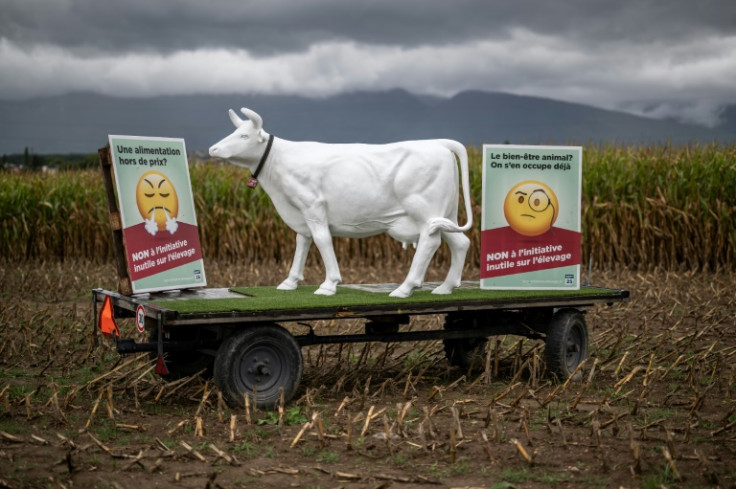Swiss Vote On Factory Farm Ban, Pension Reform

Switzerland votes Sunday on a slew of issues, including a proposed ban on factory farming and divisive pension reform that would raise the retirement age for women.
After aborted attempts in 2004 and 2017, Bern is hoping to garner enough votes to "stabilise" Switzerland's old-age security system, under pressure as life expectancy rises and the giant baby-boomer generation reaches retirement age.
The most controversial part of the reform would require women to work until the age of 65, the same age as the current retirement age for men, before receiving a full pension. They currently bow out a year earlier at 64.
Parliament approved the key measures, which include a sales tax hike, last year, but left-leaning parties and unions decry the reform "on the backs of women" and pushed the issue to a referendum under Switzerland's direct democratic system.
While backers of the reform argue that men and women retiring at the same age is not unreasonable, the move has sparked significant pushback, especially from women.
Opponents argue that women face significant discrimination and a broad gender pay-gap in Switzerland, meaning they receive far smaller pensions than men.
They argue it is unfair to increase their retirement age without first addressing those issues.
In 2020, women in Switzerland on average received pensions nearly 35 percent smaller than men, according to the Swiss economy ministry.
Surveys indicate, however, that Swiss voters, who have twice rejected government pension reform plans, have warmed to the idea, even if a war of the sexes is bubbling.
In a recent Tamedia poll, 55 percent of those questioned supported it. But while 70 percent of men backed the reform, 58 percent of women opposed it, the findings said.
Another hotly debated topic on the ballot is a popular proposal to ban intensive livestock farming, essentially eradicating factory farms in largely rural Switzerland.
The animal rights and welfare organisations behind the initiative want to make protecting the dignity of animals like cattle, chickens or pigs a constitutional requirement.
"We believe animal agriculture is one of the defining problems of our time," animal welfare group Sentience, which presented the initiative, says on its website.
If accepted, the initiative -- backed by left-leaning parties, Greenpeace and other environmental organisations -- would impose stricter minimum requirements for animal-friendly housing and care, access to outdoors and slaughtering practices.
The new requirements would also extend to imports of animals and animal products.
The government and parliament oppose the initiative, insisting that Switzerland already has among the world's strictest animal welfare laws.
Under current legislation, farms cannot keep more than 1,500 fattening pigs, 27,000 broiler chickens or 300 calves, basically ruling out the kinds of massive factory farms seen in other countries.
Bern has cautioned that tightening these rules further would significantly hike prices, while the import clause could impact relations with trading partners.
Such arguments appear to have convinced a growing number of Swiss and the most recent polls put the "no" camp in the lead. Farmers are sceptical and opposition is higher in rural areas then in cities.
The Swiss will also vote on a number of regional issues, including a vote in Bern canton that could lower the legal voting age from 18 to 16.
Most people vote in advance in Switzerland's popular polls and referendums held every few months. On Sunday, ballot boxes will open for just a few hours before closing at noon (1000 GMT).
Initial results are expected by the early afternoon.

© Copyright AFP 2024. All rights reserved.











